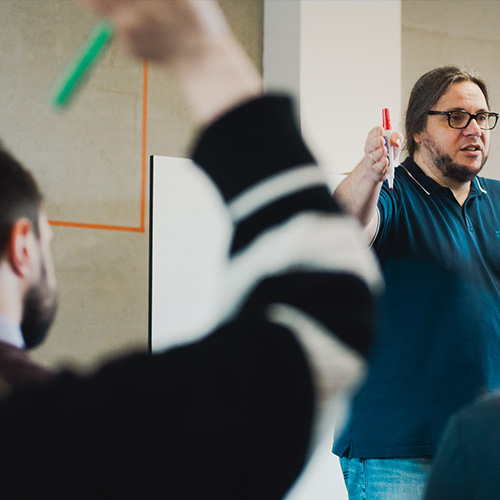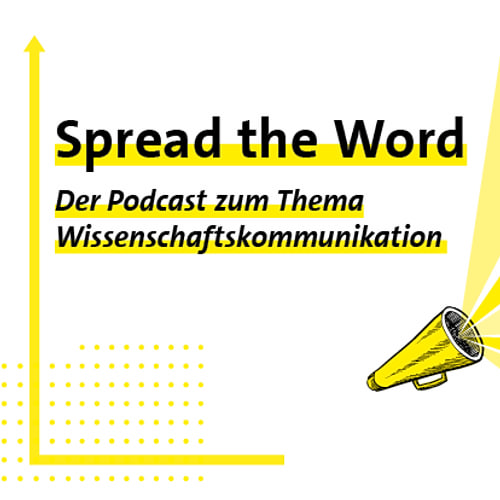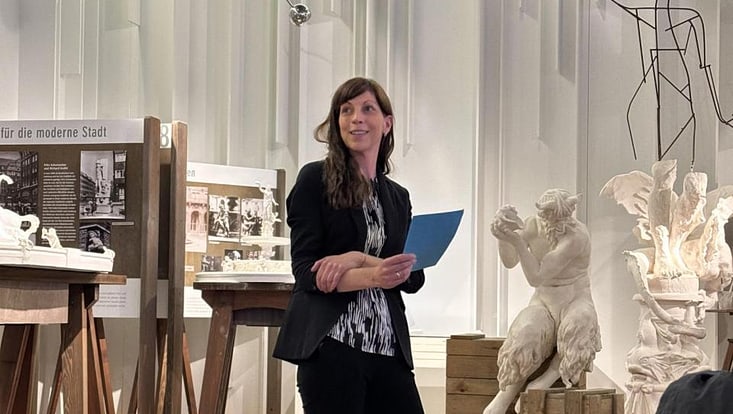Research Communication
Research communication boosts your visibility, promotes exchange, and can advance your career. Doctoral researchers and postdocs gain experience in the role as experts in their own field. They establish contacts outside of academia and develop soft skills such as communication and transfer skills through concrete projects.
We support you with a diverse workshop program, in which you can also earn a certificate, funding for projects, and a network.
Content
Research Communication Certificate
The certificate offers you a structured program: from the basics to in-depth studies of your choice, to self-reflection and a practical project. It serves as proof of your engagement in science communication, for example in job applications. You can start at any time.
Basic:
Topics & Formats:
- Making Research Visible – Visual Thinking for Science Communication
- Was tun, wenn ein Journalist anruft? Medientraining für Wissenschaftler:innen
- Three Minute Thesis Preparation Workshop
Reflection & Application:

First steps in research communication
Researchers at all career stages can get involved in research communication. Especially at the beginning of their academic career, research communication enables researchers to . . .
- gather experience acting as experts in their field
- make contacts outside academia, which can be helpful when, for example, collaborating on projects or pursuing a nonacademic career later on
- demonstrate soft skills such as project management, mediation skills, and communication skills through actual project work
- prove experience in knowledge exchange between research and society when applying for funding.
Read on:
Research communication is important for . . .
-
researchers to get new ideas for their work, to make their research (results) visible, and to advance their career
-
society to gain access to new research insights and to be able to put its own questions to and demands on science and scholarship
-
universities to present their research activities and to attract potential early career researchers and new employees.
With research communication, you can . . .
- inform
- generate interest
- inspire enthusiasm for a topic
- come up with new ideas
- view your own research from a new perspective.
Read on:
Research communication aimed at the general public is often not effective. The important thing is to keep a close eye on your own target group: Who do you want to address, and how do you best reach them? You can meaningfully narrow down the target group by using various criteria, for example:
- sociodemographic characteristics such as age, gender, place of residence, and income
- education and prior knowledge
- interest in the topic or in science and scholarship in general
- preferences or personal experience with a topic.
Read on:
- “How To Identify And Talk To Your Target Audience” by Stony Brook University’s Center for Communicating Science
- "Science for All? Practical Recommendations on Reaching Underserved Audiences" by Christian Humm & Philipp Schrögel
The research communication topics are potentially endless. Three different perspectives lend themselves to the search for a topic. If the focus is on . . .
- the research, you can describe and explain research questions, new insights, publications, and possible applications
- the research process and the people involved, you can introduce the research team and project, give insights into the “engine room,” and communicate your own motivation
- current societal issues, you can show points of contact to your research and classify current debates using your own expertise.
Read on:
Having a strategy at the outset will help you go about your activities efficiently and effectively. Key points:
- Content strategy: Determine communication objectives, content, and target groups.
- Format: Depending on the objective, different formats are appropriate for informing the general public, for engaging in dialogwith people outside academia, or for involving members of the public in research processes.
- Medium: There are many possibilities, such as your own podcast, an explanatory video, public lectures and discussion events, and social media.
- Feasibility: How much time and possible financial effort is required for this, and what impact can it be expected to have? Are the two reasonably proportionate?
- Own interests: Last but not least, you should keep your own preferences and strengths in mind when deciding on a communication format.
Read on:
- We offer a workshop program for the first steps in science communication as well as for more in-depth work with individual formats.
- Our funding opportunities help to put concrete project ideas into practice.
- “10 Tips for Effective Science Communication”
- Open Access handbook "50 Essentials on Science Communication"
- Practical guides for science communication by Script
Contact

Photo: UHH/Göttling
Our colleague Dr. Fenja De Silva-Schmidt will answer your questions on the topic of science communication.
E-Mail schreibenContact persons at your university
Communications departments or press offices are helpful points of contact for questions about research communication. Here you can find contacts at your university:
Universität Hamburg (UHH)
- Abteilung für Kommunikation und Marketing
- Fakultät MIN: Informationen zu Medienanfragen
- Fakultät Erziehungswissenschaft: Informationen zu Wissenschaftskommunikation







